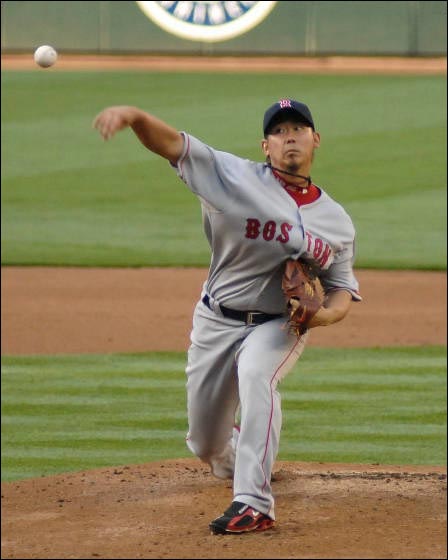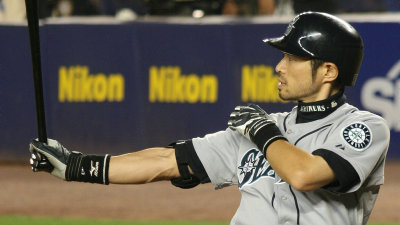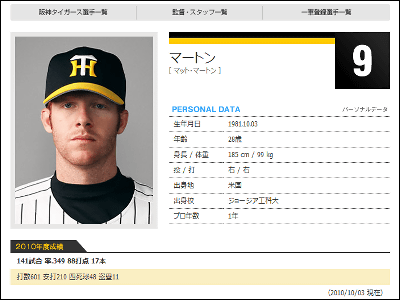How do the major league teams convert contracts with top players in Japan into commercial interests?

Tanaka Shota pitcher announced the challenge to the major league (MLB), and now many MLB teams are participating in negotiations to acquire the best pitcher in the country under the water. In contract with a Japanese top player who needs a huge investment, how MLB 's team recovers investment, what kind of players can contract with a player can profit more than a huge investment , The Mainichi Shimbun Okada reporter and Harvard Business SchoolStefan GracerThe doctor reveals in a joint paper.
How Major League Baseball Clubs Have Commercialized Their Investment in Japanese Top Stars by Isao Okada, Stephen Greyser :: SSRN
http://papers.ssrn.com/sol3/papers.cfm?abstract_id=2327711
According to Dr. Gracer, when talking with a Japanese star player, MLB's team believes he can collect a huge investment. Of course, whether big investment succeeds or fails is a matter which I do not know until opening the lid, but at least the team is not casting money unnoticed to generate profits.
Papers are taken as examples of five papers by Nomo Hideo, Ichiro, Hideki Matsui, Daisuke Matsuzaka, Kosuke Fukudome as examples, how the MLB team has profited from the contract with Japanese Major Leaguer, what kind of conditions I will clarify the results of studying whether there is commercial success if it can be commercial success.
◆Success example
Dr. Gracer believes that there are three major benefits gained by winning the Japanese star player. First, there is a way to earn money by acquiring new Japanese fans by Japanese players and increasing the number of spectators visiting the stadium. It is this success that increased this number of spectatorsIchiroHere is an example. Ichiro in 2001Seattle · MarinersHe joined the rookie year, hit 242 hits, batting rate 30% 5 minutes, stolen base number 56 to win the steal base King, shine as the rookie of the American league. The number of audiences at Safeco Field, home of the Mariners in 2001, recorded a significant increase of 11% over the previous year. As well as Japanese fans, American fans who visit the stadium to see Ichiro's successes have also increased, and the Mariners succeeded in making great profits.

ByGeorge Oates
The second source of revenue is profit from the related goods of the player. However, there are restrictions on goods that will benefit the team. In MLB, from the goods of belonging playerroyaltyThe team that the team can directly receive is limited to those sold in the ballpark, and the major league organization collectively manages revenues outside the stadium, and a mechanism is adopted to distribute income evenly among the 30 major teams It is. For this reason, even if Ichiro uniforms are sold in Japan, for example, the New York Yankees to which Ichiro belongs currently does not directly receive the profit. In other words, the ability to sell goods in the stadium is directly linked to the profit of the team.
Examples of great success with this goods revenue are pioneers of Japanese Major League ·Hideo Nomois. Nomo, in 1995,Los Angeles DodgersIf you join, you can sweep the nation by a unique "tornado throwing method", causing a Nomo fever. In Los Angeles, home to the Dodgers, 230,000 Japanese Americans live, and the team ownersPeter O'MalleyMany "NOMO mania" visited the stadium and bought Nomo's uniform · T-shirt · sweat, contributing to his strong relationship with the Japanese community since the 1950s. Dr. Gracer's investigation, although the Dodgers' Vice President of the Barry Stock Hammer team did not reveal a specific amount, the revenue from the goods was 2.8 million dollars (about 360 million yen) in 1998 He said that he was certain that he was far above the annual salary.

The third revenue is advertising and advertising income from Japanese companies that Japanese major leaguers bring. It was a great success in getting backed up by Japanese companiesHideki MatsuiI wonNew York Yankeesis. In 2003, Yankees made a major league debut in the major league in 2003, founded a joint venture company "Yomiuri · YankeeNets Marketing" with Tokyo Yomiuri Newspaper in Tokyo and solicited sponsorship companies to advertise at the Yankee Stadium based in the Yomiuri Shimbun, Komatsu, Ajinomoto, Fuji Succeeded in acquiring large companies such as film and Nikon. According to a survey of Dr. Gracer, the advertising expenses each company paid to the Yankees amount to as much as 6 million dollars a year (about 660 million yen).

ByKeith Allison
The real value of Hideki Matsui comes from the YankeesLos Angeles AngelsIt became clear in 2009 when I moved to. Matsui moved to Angels the year after shining for the World Series MVP and many Japanese companies also moved to the Angel Stadium from the Yankee Stadium following Matsui when moving from the East Coast to the West Coast. Angel will succeed in acquiring new sponsors of 10 Japanese companies. The question that the Japanese company made into the anger seems to have focused on the content "(Matsui's home run ball jumps in) is there space in the light advertisement space?"
◆Example of failure
As an economically failed example,Daisuke MatsuzakaI wonBoston Red Sox. Red Sox, MatsuzakaPosting systemAlthough I invested a huge cost of transferring 51 million dollars (about 6 billion yen) and 6 years contract 52 million dollars (about 6.1 billion yen) to acquire it, the newly acquired sponsor is only one company Funai Electric To the result that greatly betrays the expectations of the team. In addition, the Red Sox is a popular team that is about to line up with the Yankees, and since the tickets of the base Fenway Park can be sold out immediately after the season is opened, there was no increase in ticket revenue due to Matsuzaka's acquisition. Regarding this point, Sam Kennedy, Vice President of Red Sox said, "Red Sox sells a brand called Red Sox instead of individual player.The contract with Matsuzaka has purely invested in Matsuzaka's talent, It is not for money. "

ByMark Sobba
Also in 2008Kousuke FukudomeI wonChicago CubsDr. Gracer has analyzed that Chicago, home base, had a direct flight from Tokyo and could not make full use of the geographical advantage and was commercially unsuccessful. Fukudome was a hit maker who won the top batting hitter twice in Japan, but it is not so big in terms of popularity compared to Nomo, Ichiro and Matsui. In addition, the popularity is inferior not only to athletes but also to cities like Chicago, which are not attractive for Japanese travelers compared to Los Angeles and New York. It can be said that the Cubs failed to acquire cheering from Japanese companies as well as Japanese tourists targeting Fukushima.
◆Elements necessary for successful investment
In the paper, seven elements necessary for MLB 's team to recover investment and raise profit exceeding it are considered, even if the Japanese top player gets huge money. It is "fielder dominance" "popularity of athletes" "existence of direct flight" "distance from Japan" "sightseeing spot" "size of the Japanese community" "grades".
Dr. Gracer analyzes that it is more effective to invest in Japanese fielder who can play every day than pitcher who can not play every day, to receive support from Japanese tourists and Japanese sponsor companies. In addition, we believe that there are direct flights from Japan, teams with sightseeing spots besides stadiums, the Japanese community is developing and teams based in distant metropolitan areas are advantageous.
However, the most important factor is the player's ability and popularity. It is clear from Fukudome's example that investors can not be collected by popular players. In addition, Dr. Gracer tells us that "popularity" here is a factor that is a great link to the results in the United States. "The major league fans of the Japanese are mature baseball fans, we do not just support Japanese major leaguers but we are seeking high-quality players and high-quality play," said Dodgers' Vice President of Stockholmer I will. The reason why Ichiro and Matsui were always in the top of the sports player he likes in Japan was because he showed a great success in the major league, and if the results in the major league do not work, it is a star player like Matsuzaka It is also difficult to maintain the popularity of Japanese fans, and as a result it can not hope for commercial success.
Related Posts:
in Note, Posted by darkhorse_log







